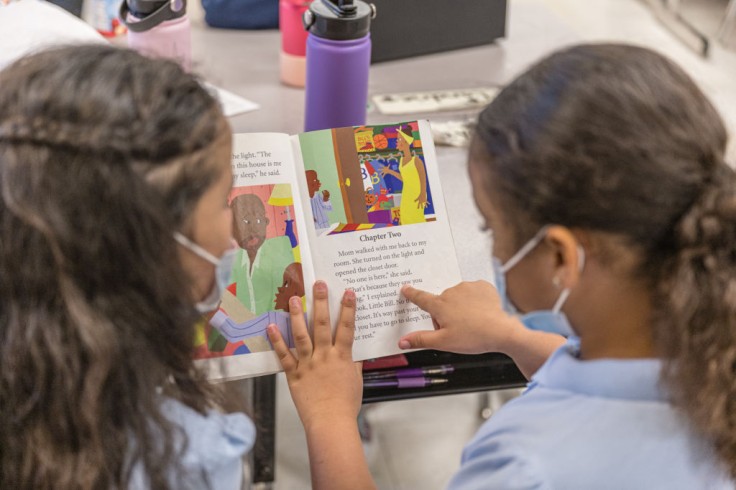
The National Education Association (NEA), the largest union of teachers in the United States, has found itself embroiled in controversy as it recommends the inclusion of the book "Gender Queer: A Memoir" by Maia Kobabe in its 'Great Summer Reads for Educators' list.
The NEA's selection, aimed at providing educators with diverse perspectives, has sparked outrage among parents and critics due to the book's sexually explicit content and LGBTQIA+ themes.
As debates continue, the NEA faces scrutiny over its commitment to racial and social justice, and its defense of book inclusion amidst calls for censorship.
NEA Stands for Book Inclusion
According to Valuetainment, in its recently published 'Great Summer Reads for Educators!' list, the NEA featured "Gender Queer" alongside ten other titles, including books that explore racial understanding and conversations about racism.
However, "Gender Queer" quickly became the center of attention, as it was listed in the NEA's 'banned books' section, having been one of the most challenged books for two consecutive years.
Critics have voiced concerns over the book's graphic content, as it deals with puberty, gender identity, and features explicit cartoon illustrations, leading some to call it "soft porn" and inappropriate for school shelves.
The memoir, penned by Maia Kobabe, recounts the author's journey of coming out as nonbinary and asexual, exploring gender identity in a way that Kobabe believes is vital for understanding various facets of life.
Despite the book's acclaim, with awards from the American Library Association and PEN America, it remains a subject of controversy and challenges to its place in educational settings.
NEA's Commitment to Social and Racial Justice
NEA's president, Becky Pringle, has repeatedly emphasized the union's dedication to social and racial justice.
For the NEA, education justice extends beyond traditional boundaries and must encompass climate justice and other interesting aspects.
This dedication to inclusivity and understanding has driven the NEA to advocate against book bans, arguing that restricting access to books puts both students and educators at a disadvantage.
However, the inclusion of "Gender Queer" in the recommended reading list has raised questions about the NEA's consistency in promoting inclusivity.
According to Poynter, while the NEA asserts that the list is intended for educators and not students, some media outlets have mistakenly portrayed it as a summer reading list for kids, causing further confusion and controversy.
Fox News, in particular, has faced criticism for misrepresenting the NEA's intentions and inflaming the situation with sensationalized headlines.
Read Also: California Jury Awards $18.8 Million To Cancer Victim in Johnson & Johnson Talc Baby Powder Lawsuit
Author's Perspective and Defending Inclusion
Maia Kobabe, the author of "Gender Queer," has expressed disagreement with the outrage surrounding the book's inclusion in the NEA's list.
As per the New York Post, defending the memoir's explicit content, Kobabe highlights that gender identity and sexuality are interconnected aspects of life.
The author believes that addressing these themes honestly is essential for fostering understanding and empathy among educators and students alike.
As the controversy continues, the NEA remains steadfast in its position, maintaining that educators benefit from reading diverse books to better comprehend their colleagues, students, and the families they serve.
Despite calls for censorship, the NEA's commitment to upholding freedom of expression remains unwavering.
As the nation's largest teachers union, the NEA faces the challenge of navigating complex issues surrounding LGBTQIA+ representation, explicit content, and the promotion of racial and social justice in education.
As the conversation continues, educators, parents, and the NEA itself grapple with finding a middle ground that respects freedom of expression while ensuring a safe and appropriate learning environment for all.